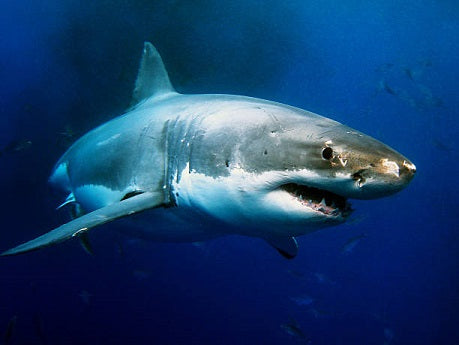
Shark Fishing: A Detailed Exploration
Share
Shark Fishing: A Detailed Exploration
Shark fishing is a practice that dates back centuries, involving both recreational and commercial efforts to catch various species of sharks. This activity has gained attention due to its impact on marine ecosystems, sustainability concerns, and the thrill it offers to anglers. In this article, we will delve into the history, methods, regulations, ethical considerations, and future of shark fishing.
History of Shark Fishing
Shark fishing has been practiced since ancient times, with indigenous coastal communities relying on sharks for food, tools, and even spiritual significance. In the 19th and early 20th centuries, shark fishing gained commercial importance as shark liver oil became a valuable commodity used in medicine and machinery lubrication. Later, the demand for shark fins for shark fin soup, especially in Asia, led to an increase in large-scale shark fishing operations. Over time, conservation awareness has grown, leading to regulatory measures aimed at controlling excessive shark harvesting.
Methods of Shark Fishing
Shark fishing can be broadly classified into recreational and commercial practices, with each employing different techniques.
Recreational Shark Fishing
-
Rod and Reel Fishing:
- Anglers use heavy-duty fishing rods and reels equipped with strong lines and steel leaders to withstand the sharp teeth and powerful runs of sharks.
- Popular bait includes fish like mackerel, bonito, or squid.
- Chumming (dispersing fish parts and blood into the water) is a common practice to attract sharks.
-
Surf Fishing:
- Fishermen cast lines from the shore into the surf zone where sharks often hunt for prey.
- This method requires specialized tackle due to the strength and size of sharks.
-
Kayak and Paddleboard Fishing:
- More adventurous anglers use kayaks or paddleboards to drop bait further into deeper waters.
- The challenge of battling a shark from such small vessels makes this method exciting but also risky.
-
Catch-and-Release Fishing:
- With increased conservation awareness, many anglers practice catch-and-release to minimize harm to shark populations.
- Techniques like using circle hooks to reduce deep hooking and proper handling to avoid injury to both the shark and angler are emphasized.
Commercial Shark Fishing
-
Longline Fishing:
- Involves setting long lines with hundreds to thousands of baited hooks over vast ocean areas.
- Highly efficient but controversial due to bycatch, including endangered species.
-
Gillnetting:
- Large nets are used to entangle sharks and other fish.
- Criticized for its impact on non-target species and marine habitats.
-
Trawl Fishing:
- Trawlers drag nets through the ocean to catch sharks along with other species.
- Often leads to habitat destruction and excessive bycatch.
Regulations and Conservation Efforts
Due to declining shark populations, numerous regulations have been implemented worldwide to promote sustainable shark fishing.
-
Catch Limits and Bans:
- Many countries enforce strict quotas and bans on fishing certain endangered shark species, such as the great white and hammerhead sharks.
- The United Nations and other conservation groups have also played roles in regulating international shark fishing.
-
Shark Finning Bans:
- Shark finning, the practice of removing fins and discarding the body at sea, is outlawed in many regions.
- The U.S., EU, and several Asian countries have imposed strict bans to curb this cruel practice.
-
Protected Marine Areas:
- Several marine sanctuaries and no-fishing zones have been established to provide safe habitats for sharks.
-
Tagging and Research Programs:
- Organizations like Oceana and the World Wildlife Fund collaborate with scientists to tag and track sharks to understand their migration patterns and behavior.
Ethical Considerations in Shark Fishing
Shark fishing raises ethical concerns, particularly regarding conservation and humane treatment of these creatures. While sharks are often depicted as dangerous predators, they play a crucial role in maintaining ocean health by regulating fish populations and preventing overgrazing of marine ecosystems.
-
Responsible Fishing Practices:
- Anglers and commercial fishers are encouraged to use non-invasive techniques and respect regulations.
- Using barbless hooks, avoiding excessive handling, and ensuring quick release of sharks are best practices.
-
Reducing Bycatch:
- New technologies, such as shark-repellent bait and modified fishing gear, help reduce bycatch in commercial fishing operations.
-
Public Perception and Media Influence:
- The media often portrays sharks as man-eaters, fueling unnecessary fear and misconceptions.
- Conservationists work to change public perception and highlight the importance of shark preservation.
Famous Shark Fishing Destinations
-
Florida, USA:
- Known for species like bull sharks, tiger sharks, and blacktip sharks.
- Regulations require catch-and-release for many species.
-
Australia:
- The Great Barrier Reef and the waters around Western Australia are prime locations.
- Strict conservation laws limit shark fishing activities.
-
South Africa:
- Home to great white sharks and various species targeted by recreational anglers.
-
Mexico:
- The Baja Peninsula is a hotspot for hammerhead and Mako sharks.
Future of Shark Fishing
As awareness of shark conservation grows, the future of shark fishing will likely continue to evolve with increased emphasis on sustainable practices.
-
Technological Advancements:
- The use of tracking devices and AI-based monitoring systems can aid in enforcing fishing regulations.
-
Stronger International Regulations:
- Governments and environmental organizations will need to collaborate on more effective policies to prevent illegal shark fishing and trafficking.
-
Eco-Tourism as an Alternative:
- Shark diving and conservation programs provide economic incentives to local communities without harming shark populations.
Conclusion
Shark fishing remains a controversial yet significant practice worldwide. While it offers recreational and economic benefits, the long-term survival of shark species must be prioritized through responsible fishing, conservation efforts, and continued research. Whether as a sport or a profession, engaging in sustainable shark fishing practices ensures that future generations can continue to experience and appreciate these magnificent creatures in the wild.
